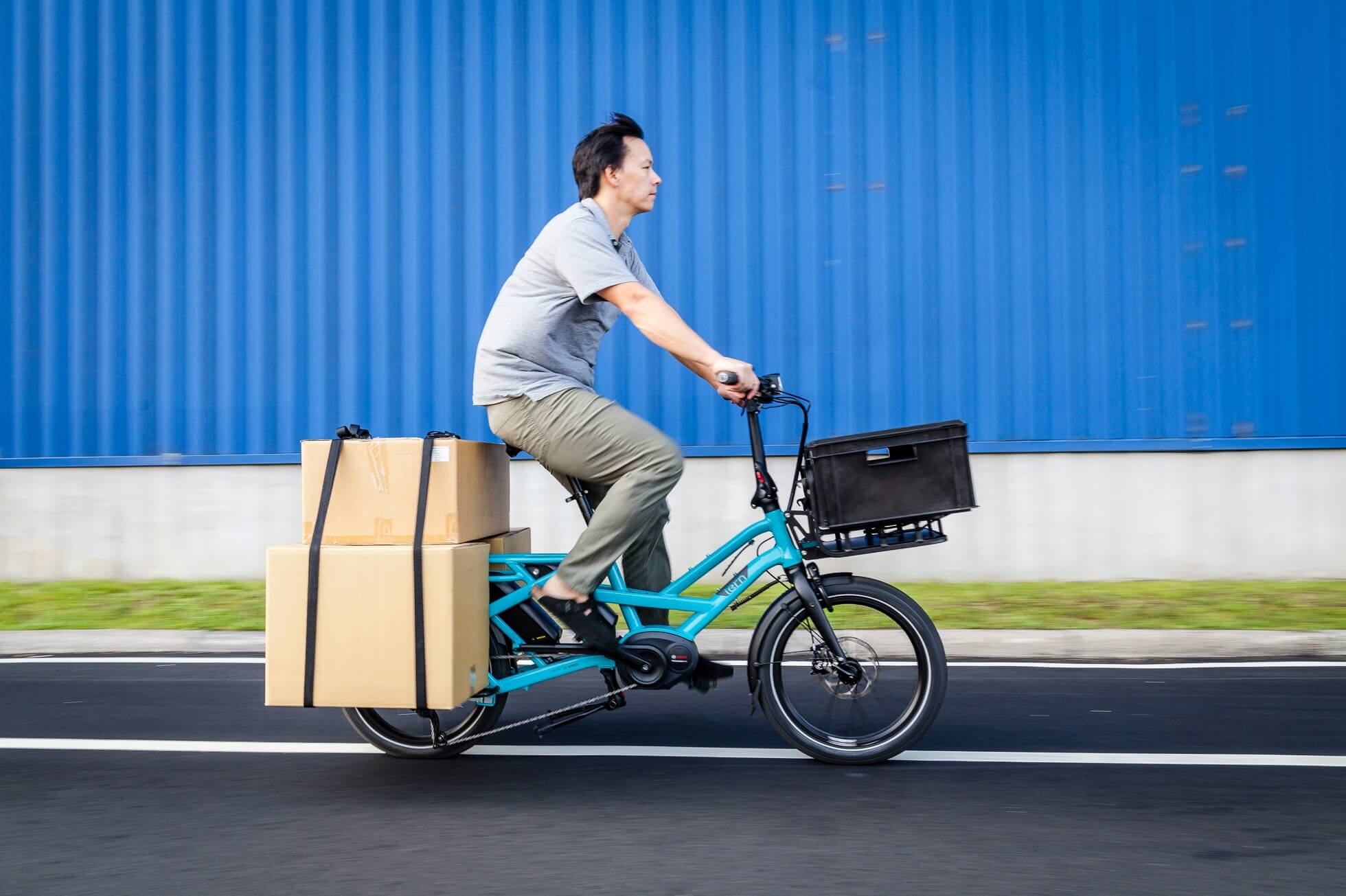The COVID-19 pandemic has created high demand for services at nonprofits that provide food, clothing, diapers, water, fresh produce, personal protective equipment, and other critical needs. Mutual aid groups have formed all across the city, and many members of those groups have used bicycles for their work.
On a recent grocery run I spotted a “Rogers Park Mutual Aid” sign attached to a trailer when I made a trip to the grocery store. A few weeks later Bike Lane Uprising helped organize bike riders to assist with emergency food deliveries for non-profits seeking assistance. Now, we have another initiative that will help non-profits transport goods in an environmentally sustainable way.
Chicago resident Beth Bond works as the urban mobility solutions leader for Bosch, a manufacturer of e-bike motors, batteries, and displays, and she was inspired to action after seeing families taking public transit to reach aid distribution sites. Beth was also aware that South and West side communities are subject to environmental injustices so she wanted to be part of the solution for reducing emissions in those neighborhoods.
Reducing the number of people who need to travel to aid distribution points, many of which are often overwhelmed with cars idling around the block, or people crowded inside the facility, mitigates potential negative impacts to public health and the environment. When Beth proposed the idea of providing electric cargo bikes to community groups in underserved communities, Bosch was on board.
Bosch, along with Tern Bicycles, Stile Products, Inc., and B-Cycle, is providing 12 cargo e-bikes and 24 e-bikes with supporting batteries to 11 public agencies, community groups, and small businesses from July through September. The entities include Northwest Side Housing Center, Logan Square Neighborhood Association, Dill Pickle Foods, North Lawndale Community Coordinating Council, Teamwork, R.A.G.E., Taryn Randle, Bronzeville Community Development Partnership, Project HOOD, South Shore Works, and The Quarry Local Food Pantry. Together these entities serve 44,000 families located in Belmont Cragin, Logan Square, North Lawndale, Englewood, Chatham, Bronzeville and South Shore. The Tern cargo bikes, for example can carry up to 440 pounds.
The bikes include onboard GPS that will allow the companies to collect data from each delivery ride, which the companies say could be used to inform future bike infrastructure planning. The companies say the data will be shared with "a number of partners," including the Chicago Department of Transportation.
It's great that these cargo cycles are available to help with pandemic needs right now, and hopefully they will help inspire more local agencies, nonprofits, and businesses to replace car and truck trips with bike runs in the future.
Updated: July 17, 2020
I reached out to Beth Bond at Bosch to learn more, especially how organizations can apply to be considered for the program.
Courtney Cobbs: Can you tell me a bit more about the application process?
Beth Bond (BB): We are asking organizations about how they plan to use the bikes. Once organizations are selected, we set up an orientation that allows riders to get comfortable riding the bike and learning how to bike while carrying cargo.
CC: Who are some of the organizations that have been selected so far?
BB: I'll share a few: My Block, My City, My Hood utilizes the bikes for PPE delivery to seniors. Hustle Mommies will be using a bike to deliver diapers and formula to new moms and Parents for Peace and Justice will be delivering food to families on the West side.
BB: We are looking to equip organizations with their own fleet. Local businesses are able to apply as well and have their employees use their bikes for deliveries. The Greater Englewood Chamber of Commerce is employing local youth to make deliveries for local businesses. We're really excited to store them centrally so that multiple organizations can have access to them.
CC: That's so cool!
BB: The B-Cycles we have coming are not the most cargo equipped compared to the Tern GSD but we will be equipping the B-cycles with a trailer attachment and supplying trailers. However, the bikes are not only being used for cargo or utility. Northwest Side Housing Center uses the bikes for Census tracking.
In an acknowledgement that need will not be disappearing in the winter months, Bosch is working with a local electric vehicle company to loan out electric vehicles to continue aid distribution.
I'm really excited to read about the ways in which these e-bikes will aid the work of Chicago organizations doing such important and necessary work. The application for the program can be found in this Google Doc. The expected end date for the e-bike loan program is September 30th.




